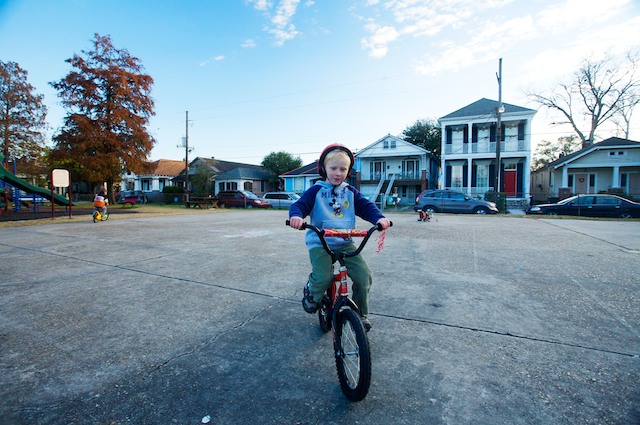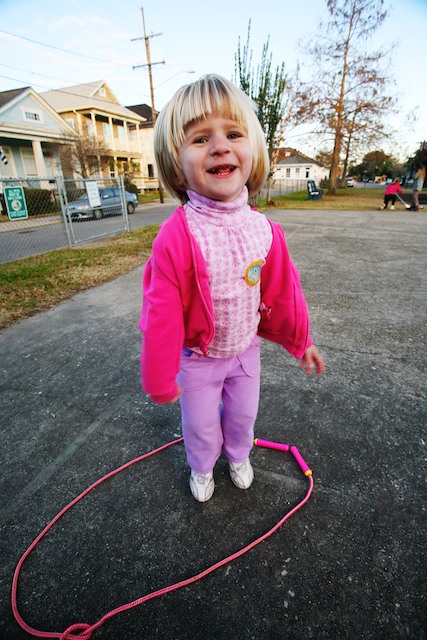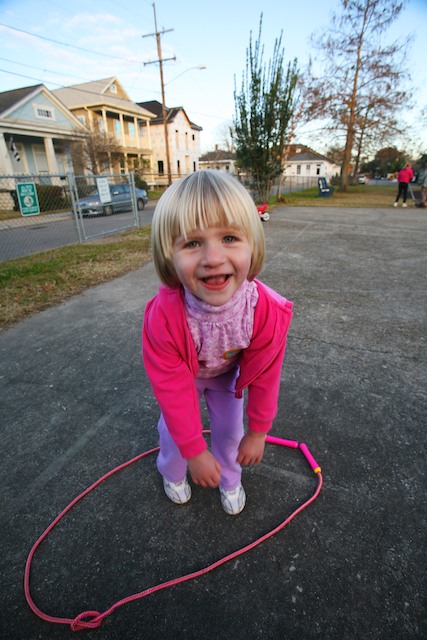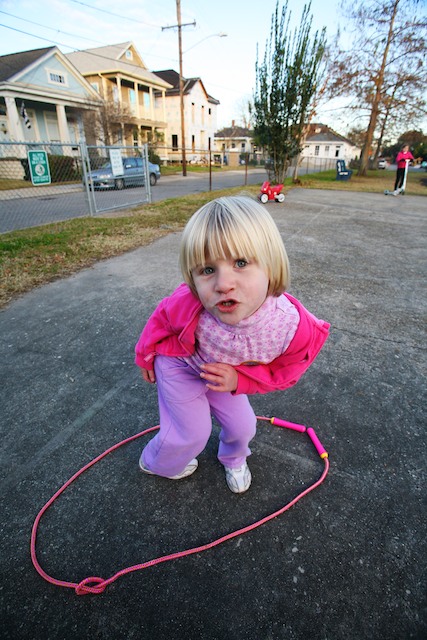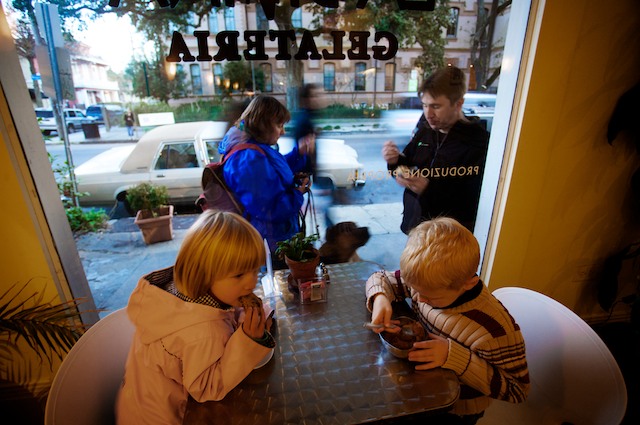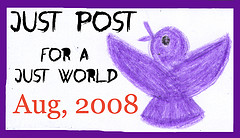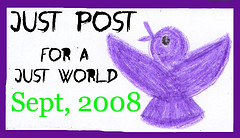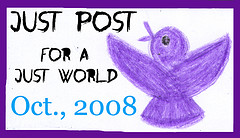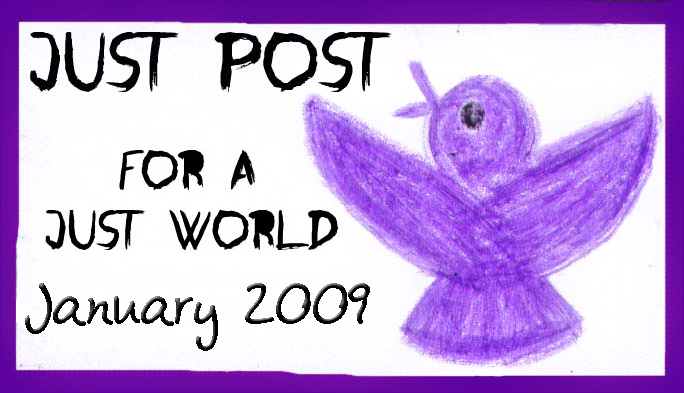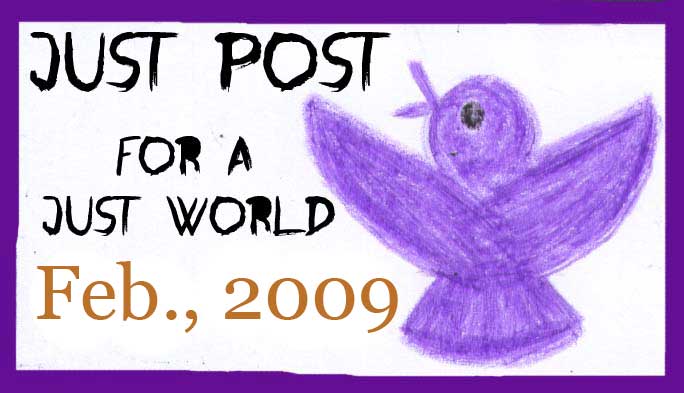{ Monthly Archives }
January 2010
What’s next?
Early on in our relationship, Paul and I shared books. I introduced him to Barbara Kingsolver, Maxine Hong Kingston and Toni Morrison (resulting in an interesting moment in an airport, where an African-American airline attendant stopped him to exclaim that she’d never thought she’d see the day when a white boy was reading Toni Morrison). In return, he suggested a variety of science fiction, a genre where I had limited experience.
To his credit, there were a few books that were good. Ursula LeGuin, as an example.
But then he recommended a book so horrendously terrible that he lost book credibility for years. Further, it made me question the entire volume of Science Fiction literature, as this particular book had been given awards.
The book? Snow Crash.
Granted, I find speculative fiction generally boring. In my most critical mind, I would argue it is full of self-importance; creating unsophisticated pretend worlds as excuses for storylines characterized by masturbatory fantasies for the heterosexual male. The epitome of this is Snow Crash. The main character, Hiro Protagonist (oh, Hero. And he’s the Protagonist. Haha… isn’t that author clever? *gag*) who is basically a guy who did some okay work in his past, got screwed by the man (so to speak), now delivers pizza and has, like, a really cool score sword-fighting with his virtual identity in a virtual world. In short: he’s the stereotype of Science Fiction readership. Seriously, though, I LOVE geeks, but let’s be real. Hiro IS the Comic Book guy in The Simpsons.
It gets worse. Hiro’s love interest is a teenage girl — a FIFTEEN year old girl — and yet there is never an issue with the fact that the dude is, ahem, a pedophile.
—
Anyway, I digress. The point I’m making is that I’ve approached anything Paul suggests with caution. And Science Fiction? Well, if it’s even remotely related to something in the future, or fantasy, or is written by a possibly-creepy dude, I steer clear.
Which is why it took me so long to come around to Neil Gaiman.
Actually, laloca had more to do with turning me to Gaiman. I figured if she liked him, he can’t be that bad. Also, I’d read Coraline and liked it quite a bit. So a few years back, I gave Paul the book American Gods — because Terry Pratchett hadn’t published anything new at that time.
I recently finished The Golden Compass series (which I read out of curiosity of what strong young women are available in ‘youth’ novels these days — the first two books of the series were in the dollar sale at the library, so I figured I give them a try). I wasn’t ready to go back to my usual nonfiction reading, so I picked up American Gods.
And I really enjoyed it.
So 2010? Let this be my year to be more aware of my repulsions, and work a little harder to experiment. (But please, give me a few months to work up to raw oysters. I’m not quite there yet.)
Where I vent on education, immersion, and the experience of being a parent.
The New Year is upon us, which means the families of New Orleans are gearing up for two seasons: Mardi Gras and School-finding. Schools have their application deadlines about now, along with lotteries for selection into charter schools and deposits to hold places in prospective elementary (and in some cases pre-k) schools. It’s a big game in these parts, a system built on payment and privilege from start to finish. For many schools, families are required to shell out big bucks (think, $300+ per kid) for an “evaluation” of their 3 or 4 or 5 year old child’s “intelligence” in the hopes that if he or she is granted a “gifted” distinction that would allow them eligibility. For the private schools, it’s yet-another-hurdle to cross. For the public-schools-gone-charter, it’s a way to keep some screening in place. (Plus, schools get extra funding if they provide services to a “special needs” population — meaning that programs to fill the needs of the “gifted” 5-year old are abundant in New Orleans.)
As you can tell from my liberal use of quotations, I think the whole system is sick. The measure of gifted-ness by our local evaluators are, at best, an assessment of how much time a parent or other caring adult has spent nurturing that particular child’s creativity and spirit. In reality? Well, children that go to the paid evaluation service have a much greater likelihood of walking away with an intelligence label than children who go to the school system’s service. We all know it is ridiculous; no one I know actually takes any of these tests seriously. It’s just one more stupid hoop we have to jump through to navigate our families through the murky and dangerous waters of New Orleans education. You do it because you have to and then you move on.
One of my largest frustrations is that I have absolutely no idea how I could even begin to advocate for any type of change. I do believe that personal is political — but that doesn’t mean I’m simply going to send my kids to the public school down the street. How can I advocate for change when I am using every bit of privilege we have — economic, social, racial — to see that our own children are given the best opportunities we can provide?
These are my frustrations with our local schools. That they are structured, specifically, to enforce class barriers and continue to be successful in their intent. It forces me to consider dark and ugly realities of our world and consciously decide where I want to put my children within them.
*****
Even before our kids were born, we knew that early immersion in a second language was our absolute, number one priority for our children. One of the reasons we love being in New Orleans is that we are able to give our children that gift of immersion right here… in immersion schools. New Orleans has a number of schools, both private and charter (public) that run language immersion programs. Each one runs a bit differently, but the bottom line is this: from pre-school through 5th grade, students are taught in a language other than English for every lesson.
Our children have attended a French immersion school for the past 1 1/2 school years. Our school is private. The application did not require intelligence testing or extensive observation, focusing instead on questions designed to assess the family’s level of commitment to immersion education. Other immersion programs run as charter schools through the public school system. They have yearly lotteries which take in various demographics of applications to ensure diversity in each class. For Paul and I, immersion schools are the programs of choice. These are the educational experiences that make life here unique and special. We believe it’s worth living here to take advantage of those opportunities.
There are scientific reasons. Language development is time-sensitive in the brain. It’s easier to learn languages at younger ages because of how the brain develops. Over time, various doors of opportunity close. For example, the ability to acquire the sounds and accents of a native speaker ceases around age 6. In short, if you want to give your child the gift of language — then the earlier you immerse them in it, the better.
Plus, there are other benefits. Child education and development literature talk about strides in cognitive development in immersion kids compared to English-only education — stuff like more flexible thinking and greater ability to handle nonverbal problem-solving. Also, there are three decades of solid evidence that immersion kids perform better in both standardized math and language tests administered in English. Yes, yes, it’s true: putting your kid in a school that teaches him all day in a language OTHER than English will, in fact, improve their English more than if they were in a school that spoke English to them all day.
In short, hearing a second language on a regular basis from a live human being is a great thing for kids.
But. Being part of an immersion program takes a big leap of faith for an English-speaking parent. For one, teachers are not necessarily fully fluent in English. This can be a little unsettling for parents, naturally, because communicating with your kid’s teacher about complex behaviors and assignments and who-knows-what-else is pretty darn important. But is it a deal-breaker?
Well, Paul and I speak Spanish. We’ve lived in Latin America over extended time periods (though never longer than 10 weeks) and know what it feels like to work to understand and be understood. We’re not native speakers nor are we fluent — in short, we’re not unlike many of our kids teachers. Having been in the hot-seat ourselves (so to speak) we do have a good sense of what they feel when they try to talk to us and we know how that the in-ability to find the “right” word in English does not mean that they don’t understand us, the problem, or our child. It takes a leap of faith on our part that they are competent in ways that we won’t necessarily see: in their work, in their nurturing of our kids, in the curriculum. Within many aspects of the school-child-teacher interaction, there are cultural and linguistic factors to consider.
That said, last year, it was Will’s teacher who suggested that Will was having trouble hearing. (She was 100% correct.) This year, his new teacher continued to help us with Will’s hearing problems, as well as with his particular learning style. When we have had a question or a concern, cultural and linguistic differences did not matter.
For us, we have found it exciting and educational to learn some French. Will and Kate participate in French holidays, learns French songs, sees French cartoons, reads classic French tales, and cooks French foods. Each and every one of these have been different from the early education experiences had by Paul and me; but we are enjoying each opportunity. It is a big leap of faith for parents, because it is so different: school performances aren’t of Row, Row, Row Your Boat — but of Le Petits Poissons. I admit that I feel some relief when Will spontaneously sings Down By the Bay, or Jingle Bells, because I want him to know these songs, too.
It is both exciting and scary that he is learning things I cannot teach him. Even more, he is learning things that I, myself, don’t know. That, I think, is the greatest sacrifice a parent makes within these programs — you have to trust someone else so much that you are willing to let them teach your child things that you, yourself, don’t understand. It’s sort of scary to suddenly not have total control and awareness. It requires a big leap of faith.
Even with that uncertainty, we love the immersion experience. Will’s enthusiasm for French is inspiring. We are impressed at Kate’s sophistication regarding language, her clear comprehension of the many ways there are the communicate, and how many words exist to describe the same thing. It was no small feat to trust in a system completely new to us and we can confidently say that we are thrilled: our children love their school and embrace the culture and language it teaches. We enthusiastically recommend immersion education and are grateful to be a part of our school.
*****
But then there is the here and now. Rising tuition is forcing the questions of schools, which forces me to the harsh reality that the quality of schooling my kids are getting is not commonplace. ALL kids should have access to education that fosters their creativity, imagination, and spirits — that gives them new skills and confidence. And I feel badly that I am better positioned than others to fight for my child’s right to that experience, and guilty that I am weighing financial considerations into the equation. Will we find a more affordable immersion experience? Will we be able to afford another year where we are? Is there a clear “right” choice in there that we are missing?
Where y’at?

Here’s where we’re at, January 1st, 2010.
1. Christmas tree is still up.
2. 300 pages in to American Gods.
3. Wearing a size smaller pants, not that this means anything.
4. Getting ready to go to a friend’s birthday party.
5. Friends from Michigan en route to NOLA.
6. Eating leftover red beans for dinner.
7. Kate in a Cinderella dress and vintage glass Mardi Gras bead necklace.
8. Me in necklace and earrings made by Will.
9. Paul feeling better than yesterday, but still rough.
10. Happy to be healthy and happy in New Orleans!
